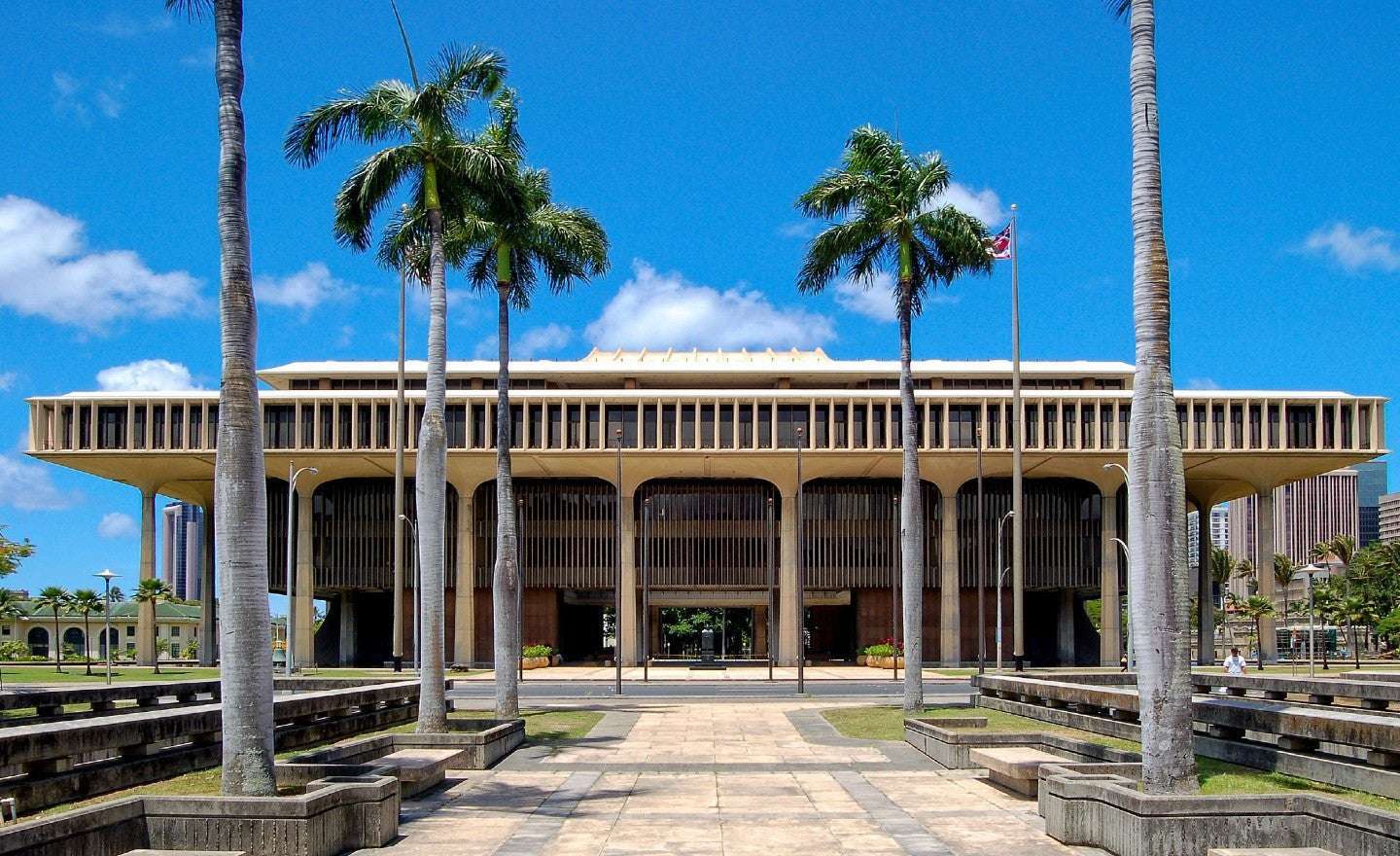Hawaii will make history on Thursday as the first state legislature to declare a climate emergency.
The state legislature is set to pass a Senate Resolution, SCR44, that openly states that climate change threatens both humankind and the environment. It requests state collaboration with organizations devoted to alleviating the adverse effects of climate change to halt the increase of global temperatures.
“I’m very pleased that the Legislature has taken this step by declaring a climate emergency,” said Sen. Mike Gabbard (D), the primary sponsor of the resolution. “We must take strong action to address climate change related challenges, such as sea level rise, coastal erosion, and the protection of our critical infrastructure.”
SCIENTISTS BLOW UP DECADES OF THINKING ON WHY HURRICANES ARE BECOMING MORE DEADLY
SURPRISING REPORT FINDS US CAN REACH NET-ZERO EMISSIONS BY 2050 FOR JUST $1 PER PERSON PER DAY
When Gabbard introduced SCR44, it received unanimous support in the Senate, and was quickly taken up in the House chamber.
The resolution was championed by the Hawaii Climate & Environmental Coalition, composed of more than a dozen organizations focused on halting climate change, with a major focus on the Hawaiian Islands.
Prior to recognition on a state level, the local governments of Maui and Hawaii Island had declared a climate emergency in 2019.
In the official press release, officials cite the “mounting” evidence of climate change as a major global threat, specifically noting a 2017 letter signed by more than 15,000 scientists from 184 countries explicitly warning humanity of the need to shift away from economies dependent on fossil fuels and preserve natural ecosystems to stop environmental degradation.
“Every day we wait to take action is another day lost. The climate crisis is a clear and present threat for both current and future generations,” said Dyson Chee, the advocacy director for the Hawaii Youth Climate Coalition, a member organization of the Hawaii Climate & Environmental Coalition. “This is why we are thankful for the passage of SCR44, and the recognition by the Hawaii State Legislature that climate change is an emergency that needs to be dealt with accordingly.”
With the passage of the resolution, Hawaii commits to “statewide action that is rooted in equity, self-determination, culture, tradition, and the belief that people locally and around the world have the right to clean, healthy, and adequate air, water, land, food, education, and shelter.”
These major infrastructural changes will be a joint project with the Hawaii Climate & Environmental Coalition and state legislature working in tandem.
Outside of Hawaii, a total of 1,933 jurisdictions across 34 countries have declared their own climate emergencies. Australia and the U.K. are two leaders in this movement.
In the U.S. federal legislature, a House resolution was introduced by Rep. Earl Blumenauer (D-Ore.) in February to issue a national climate emergency declaration.
BIDEN PROMISES TO CUT US EMISSIONS IN HALF IN LESS THAN 10 YEARS AHEAD OF WORLD CLIMATE SUMMIT
SCIENTISTS SAY ‘UNIMAGINABLE AMOUNTS’ OF WATER WILL POUR INTO OCEANS IF ICE SHELVES COLLAPSE AMID GLOBAL HEATING
NEW STUDY SAYS THE EARTH COULD SEE SIX MONTH-LONG SUMMERS
SURPRISING STUDY FINDS SHARKS ARE KEY TO RESTORING DAMAGED HABITATS, FIGHTING CLIMATE CHANGE

FEMA_Camp_Survivor on April 29th, 2021 at 15:23 UTC »
Florida should really follow suit. It’s largely flat coastal plains, but people down there seem largely oblivious. Companies will eventually stop issuing mortgages and insurance. All those people will have to move somewhere.
FizzyBeverage on April 29th, 2021 at 14:40 UTC »
Florida should do the same, but DeSantis is too busy hoping Trump doesn't consider a 2024 run so he can safely bring his brand of shitbirding to a federal level.
Ceratisa on April 29th, 2021 at 14:32 UTC »
I mean, that's kinda logical, being a small archipelago in the middle of a vast ocean and a tropical climate. It's far more sensitive than most of the continental U.S.